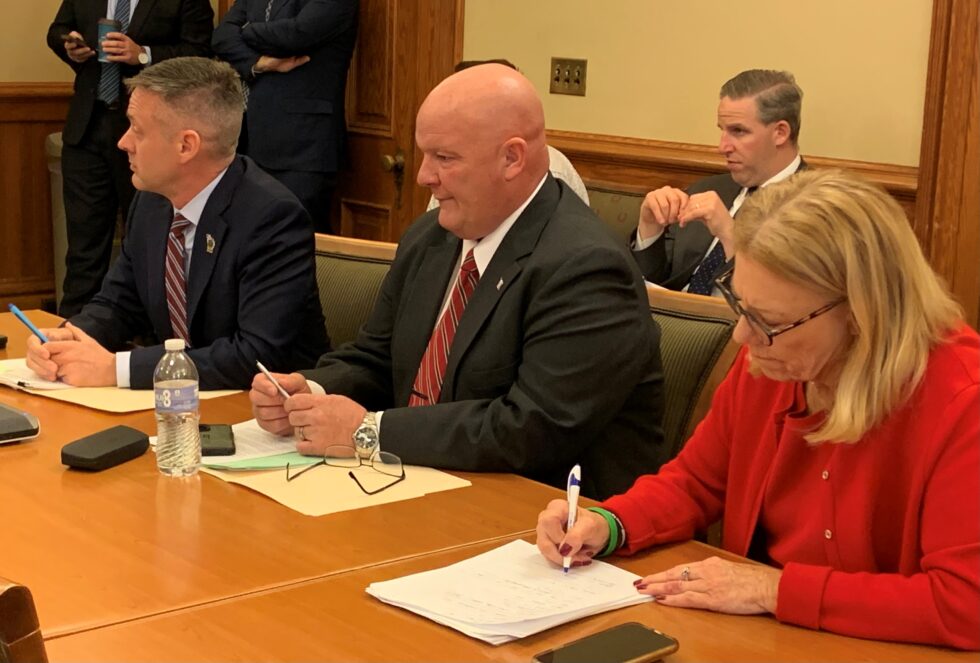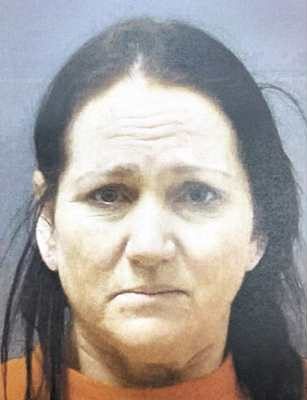(Radio Iowa) – Republicans on a Senate subcommittee have advanced the governor’s bill to speed up state income tax cuts, provide a property tax cut for commercial child care centers AND reduce the tax businesses pay into the state’s unemployment trust fund.
However, Senator Dan Dawson, the Republican who leads the Senate Ways and Means Committee, indicates those components are going to be considered as separate bills in the coming weeks, with his own bill to gradually eliminate the state income tax in the mix. “Right now these are all just pieces of paper people are talking about,” Dawson told reporters after today’s Senate subcommittee meeting on the governor’s bill. “I think it’s important to get fiscal notes and give people a chance to weigh in.”

Senators, from left to right, on subcommittee considering governor’s tax proposals are Senator Dan Dawson (R-Council Bluffs), Senator Jason Schultz (R-Schleswig) and Senator Pam Jochum (D-Dubuque). (RI photo)
Governor Kim Reynolds has proposed lowering the state income tax retroactively to 3.65% this year and to 3.5% next year. “Despite the tax cuts already delivered, Iowa ended the year with a $1.83 billion surplus, $902 million in reserve funds and $2.7 billion in the Taxpayer Relief Fund,” Molly Severn, the governor’s legislative liaison, said during the subcommittee meeting. “The state is over collecting from Iowans and they deserve to keep more of their hard earned money.”
Money in the Taxpayer Relief Fund would be used to accomplish the governor’s immediate tax cutting goals. Dawson has proposed investing that money and using the profits to gradually reduce the state income tax. “We owe it to Iowa, since we’ve accumulated those monies in the Taxpayers Relief Fund, to really kind of think through responsibly what a long term plan is,” Dawson said.
Senate Democratic Leader Pam Jochum of Dubuque said getting rid of the income tax benefits the wealthiest Iowans. “We will be shifting to funding state government with more regressive taxation called sales tax and property tax,” Jochum said, “and those are not good ways to fund state government.”
Jochum also opposes the plan to lower the taxes businesses pay into the state fund that’s used to cover unemployment checks. “Sooner or later there’ll be a downturn in the economy…and then what happens to businesses (as) unemployment goes up and now their tax rates are going to go up to try and keep that trust fund alive and floating?” Jochum said. “That’s probably not the time to ask them to increase their unemployment tax rates.”
Severn told senators the governor’s proposal would lower businesses unemployment insurance taxes by 40%. “Helping companies of all sizes prosper, especially small businesses,” Severn said, “and making Iowa more competitive.”
Initial estimates indicate the tax break would save Iowa employers over $800 million over five years, according to Severn.




























